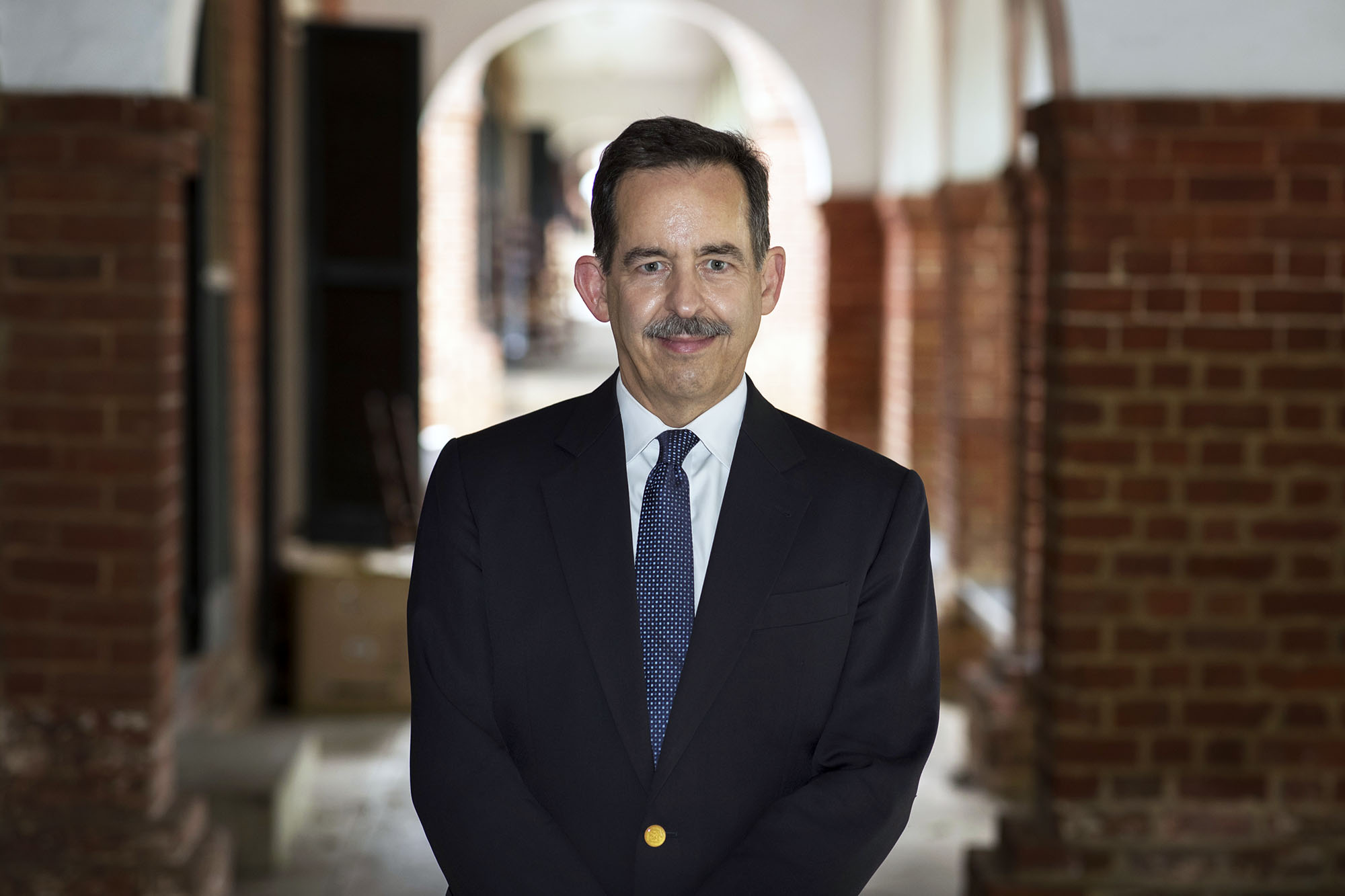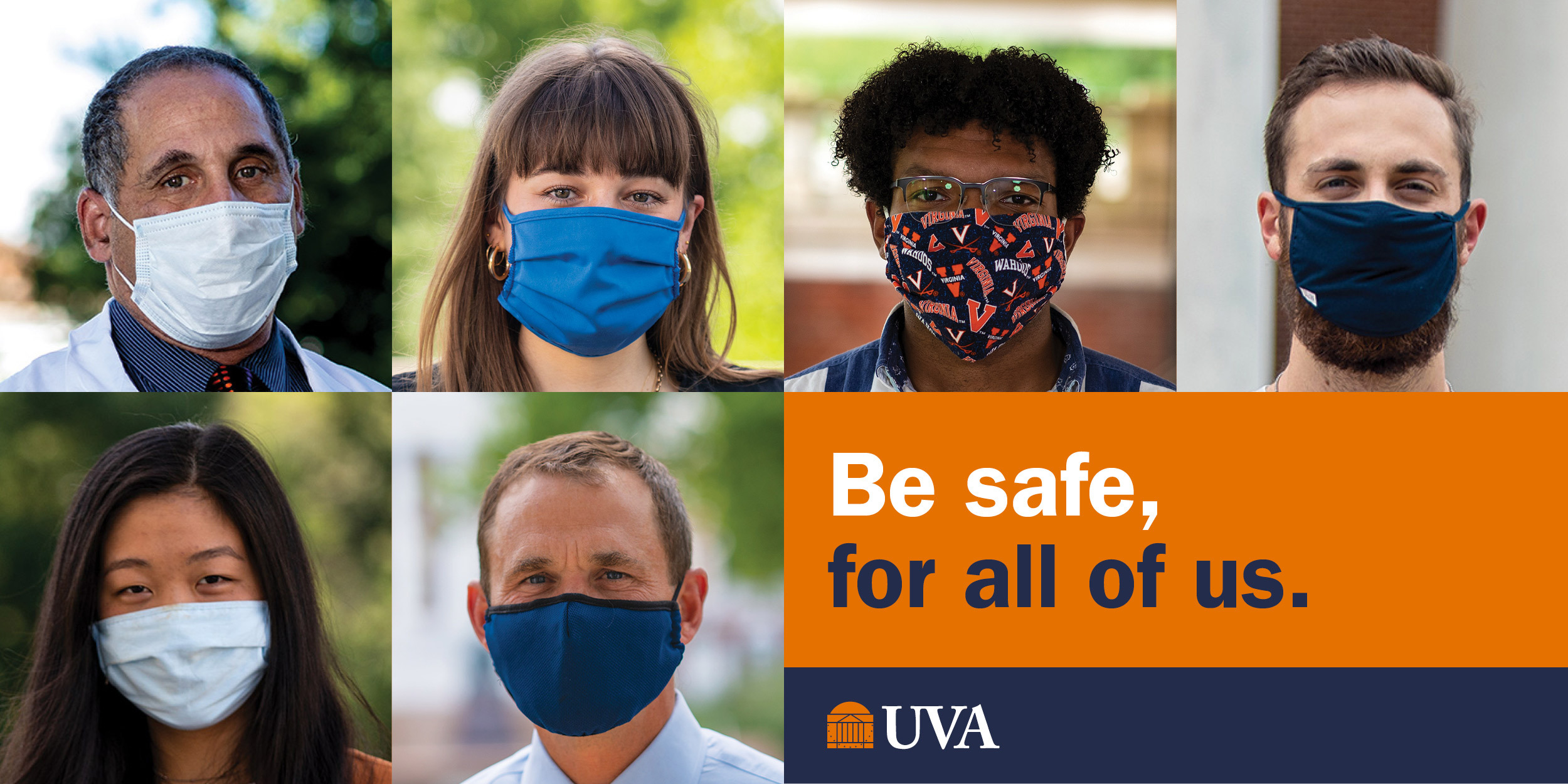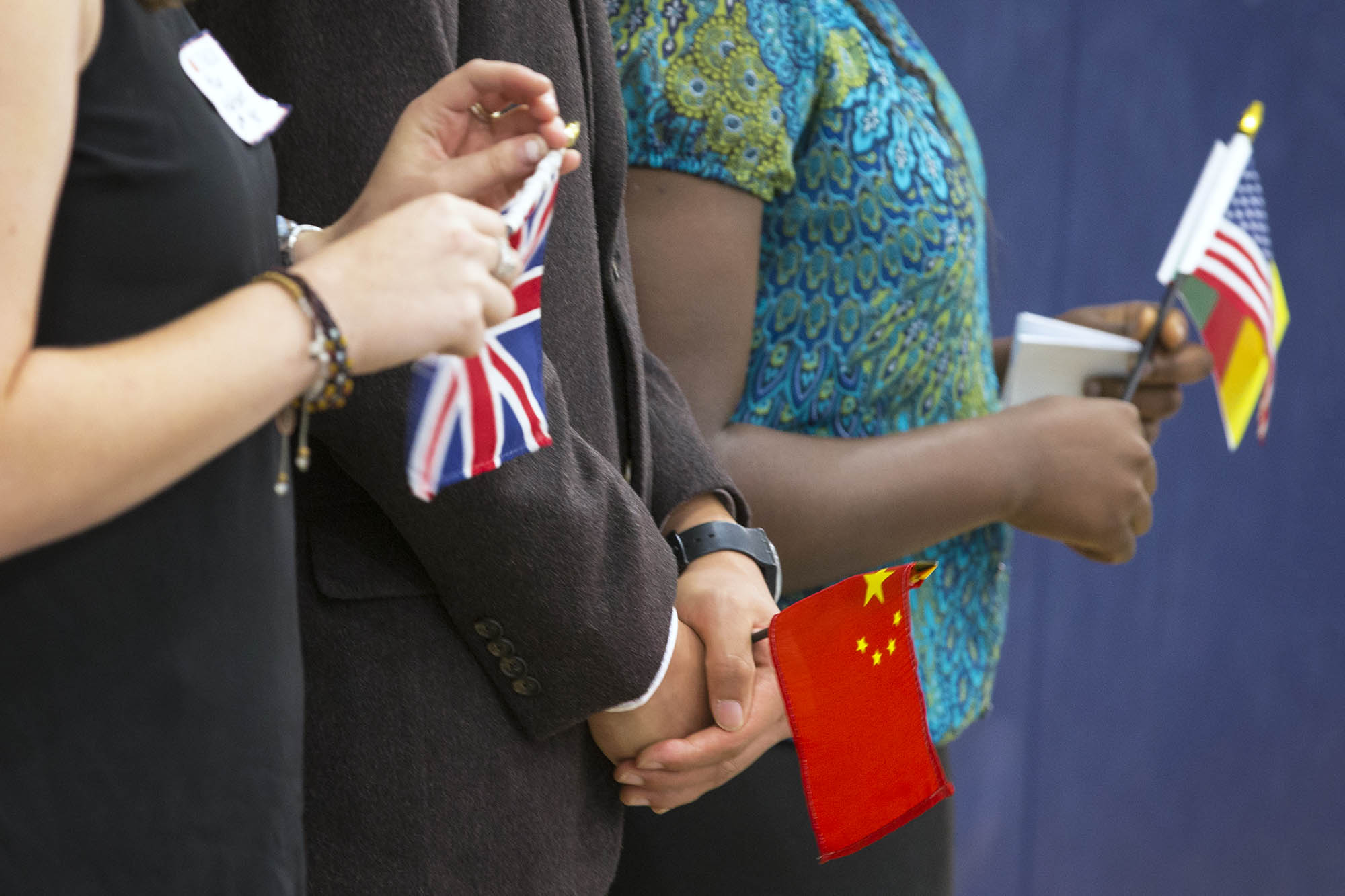The coronavirus pandemic has created new challenges for every student, and specific challenges for international students eager to start or continue their studies at the University of Virginia.
Vice Provost for Global Affairs Stephen Mull is among the UVA leaders working to address those challenges, from helping students navigate visas and quarantine protocols to developing new partnerships with international universities like Fudan University, where UVA students in China can now enroll for UVA credit if they are unable or unwilling to travel to Charlottesville for the semester.
“A lot of obstacles have been thrown in the way of our international student community, but we are committed to accommodating them and doing everything we can to ease those challenges,” Mull said.
He spoke with UVA Today to explain more about current accommodations for international students, upcoming challenges and plans for resuming other forms of international study when it is safe to do so.
Q. What are some of the challenges international students are facing this semester?
A. Every student coming to UVA faces challenges right now, as does anyone traveling, but our international students are facing some acute problems. For example, most, if not all, visa sections at U.S. embassies and consulates around the world were closed until very recently, which has made it difficult for new students to apply for visas. And travel restrictions complicated things for some countries.

Vice Provost for Global Affairs Stephen Mull said while the pandemic has made international education difficult, it has also highlighted its importance. (Photo by Dan Addison, University Communications)
In addition, the U.S. Immigration and Customs Enforcement Service, or ICE, announced in July that students would not be admitted to the U.S. unless they were having some form of in-person instruction. In fact, the original statement said that any international students in the U.S. would be deported if they did not have in-person instruction. That would have been very difficult, as about 75% of our international students stayed in the U.S. after the pandemic began in March, for various reasons. However, ICE withdrew that plan after swift, immediate outcry from students and universities, including UVA. Now, the requirement applies for international students entering the U.S. for the first time, which would include most of our first-year students and which we are working to accommodate.
Q. How is UVA helping students facing these challenges?
A. We have done a number of things as different obstacles have arisen. Very early on, for example, one of the first decisions President Jim Ryan and Provost Liz Magill made was guaranteeing our international students that they would be able to take a full course load, regardless of where they were. That took a lot of pressure off of our students.
UVA also joined other universities in protesting the ICE policy when it came out. I was pleased that all 12 of our schools, within a matter of minutes, agreed to guarantee in-person instruction for international students who could make it here, so that they could stay in the U.S. That guarantee still stands, as long as the University itself is able to safely hold in-person instruction.
In addition, we have developed partnerships with international universities. In China, for example, home to a large segment of our international student population, we have partnered with Fudan University in Shanghai to create a type of exchange program, where UVA students who are in China this semester can take courses at Fudan and receive credit at UVA. In the next few weeks, we will have about 80 first-year students beginning at Fudan, and our academic advisers have been working with those students and with Fudan to come up with courses that will meet UVA’s first-year requirements.
Q. What guidelines are in place for international students who are traveling to the U.S. to begin their semester?
A. In all of our University policies, we are adhering very closely to all public health guidelines in Virginia and in the U.S. We are working with student affairs to make arrangements and line up housing for international students who need to quarantine for 14 days upon their arrival, especially housing arrangements for students who had planned to be in on-Grounds housing before the recent two-week delay.

In addition, international students, like every UVA student coming to Charlottesville, will be required to take a COVID-19 test. International students will need to order the self-administered test kit once they arrive, as it cannot be shipped overseas, and take the test as quickly as they can.
Q. Looking ahead, how are you planning to make a safe return to more global education, including study-abroad experiences?
A. No one has a manual for this, so there are very few certainties. At the moment, some countries are not even allowing Americans to enter, which is pretty sobering. On the other hand, one of the encouraging things about this pandemic is that it has underscored just how important international education and engagement is. We are not going to solve the pandemic by not engaging with the rest of the world. It’s a perfect example of a global problem that is not confined to national borders, and those problems are growing – problems like climate change, migration and disease. Even though it is difficult right now, it is so important to continue to expose our students to international education, as they will be faced with these sorts of global problems.
I know from talking to students and faculty that they are eager to travel again, and I hope we can resume our study-abroad programs as soon as it is safe, something a vaccine will greatly help with.
In the meantime, this has forced us to be a lot more resilient in terms of how we see international education. We have found ways to capture some sort of “international experience,” including a global classroom program pairing UVA courses with co-taught courses at international universities, and a virtual global internship program, which moved our popular in-person program online this summer. Even though they could not travel, we placed about 15 students in internships in places like Morocco and India, and they worked on projects remotely. We got a lot of positive feedback from both students and employers, and we have learned a lot that I think will help us in the pandemic and beyond.
Q. Is there anything else you would like to add?
A. I do want to say that there are a lot of tensions in the current U.S.-China relationship that we are tracking very closely, including possible visa restrictions that could have implications for our Chinese graduate students and, on the other hand, increasing concerns about academic freedom in China. We want to make sure we protect our students and faculty and that they have complete academic freedom when conducting courses over Zoom or other platforms. We don’t have any indication that is at risk right now, but it is something we are paying close attention to and being very careful of.
At the same time, it is so important that we continue to grow our relationship with China. I was very pleased to address the Chinese Ministry of Education recently in a webinar they host each year for teachers and counselors across China, talking about study abroad. UVA was the only American university invited to participate in that event, and it was a really good opportunity to showcase the values we represent as a university and to encourage international students to consider UVA. China is an important country and will continue to be influential in world events.
We have an obligation to stay engaged and to learn from each other, and UVA is committed to doing that.
Media Contact
Article Information
September 1, 2020
/content/qa-how-covid-19-affecting-international-students-global-education-plans

